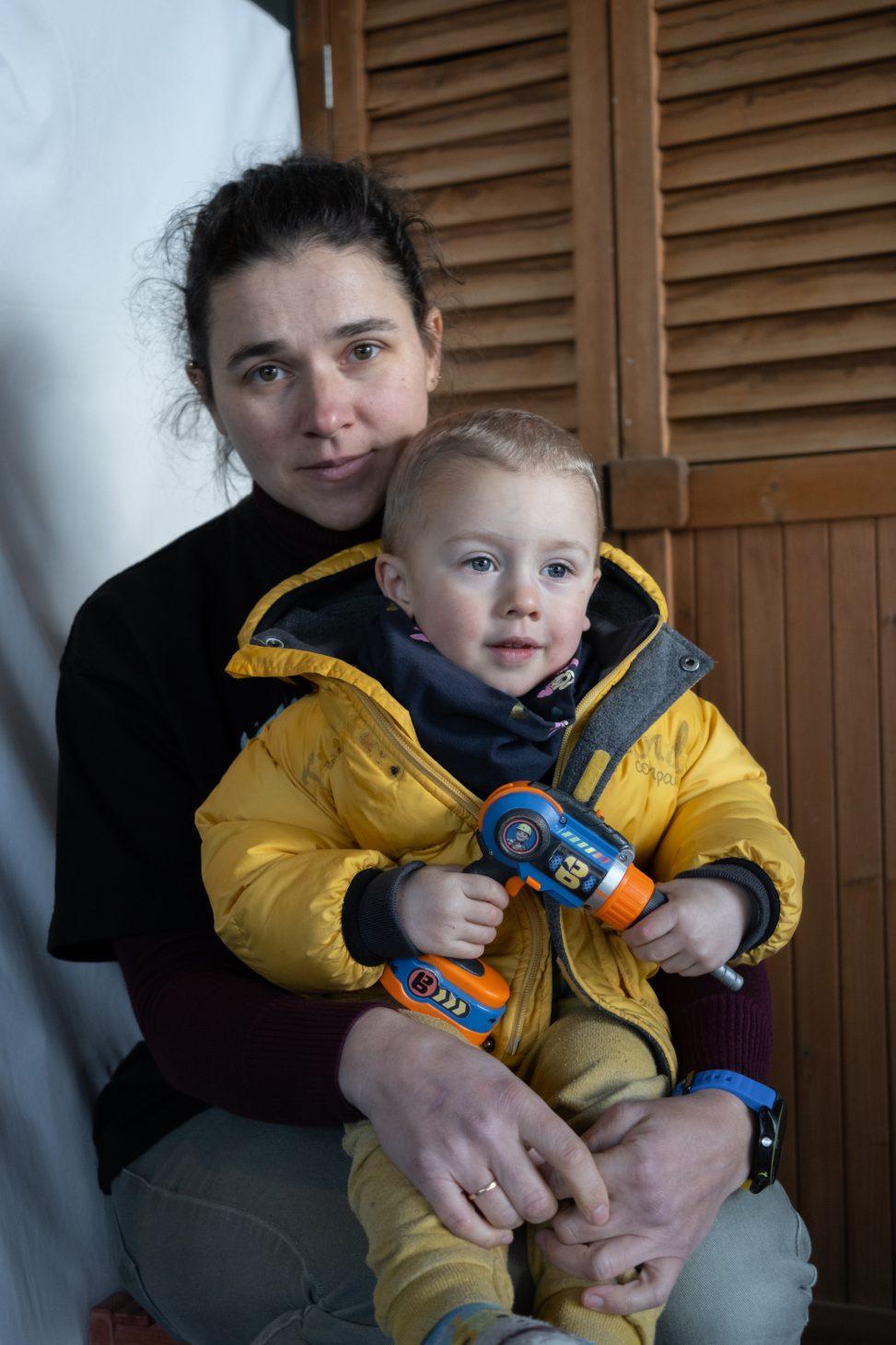This photographic project provides a glimpse into the experiences of some Ukrainian refugees who have sought refuge in The Netherlands. It will focus on a local organization called Volunteers with No Limits, through which they have found support, a sense of community and a lifeline of hope.
The ongoing war in Ukraine continues to unfold, and it remains imperative that we acknowledge and remember the profound impact it has on thousands of innocent civilians.
This work portrays some individuals inside the organization, capturing in this way their momentary existence as displaced persons. In addition, I conducted interviews with a range of individuals and included personal objects and photographs of their surroundings to suggest a wider narrative.
In this way, I can give viewers a brief insight into the lives of refugees, while also highlighting the broader systemic issues that contribute to their situation.
Through these photographs and stories, I seek to inspire empathy and action towards supporting Ukranian refugees and to raise awareness of the ongoing impact of war on civilians.


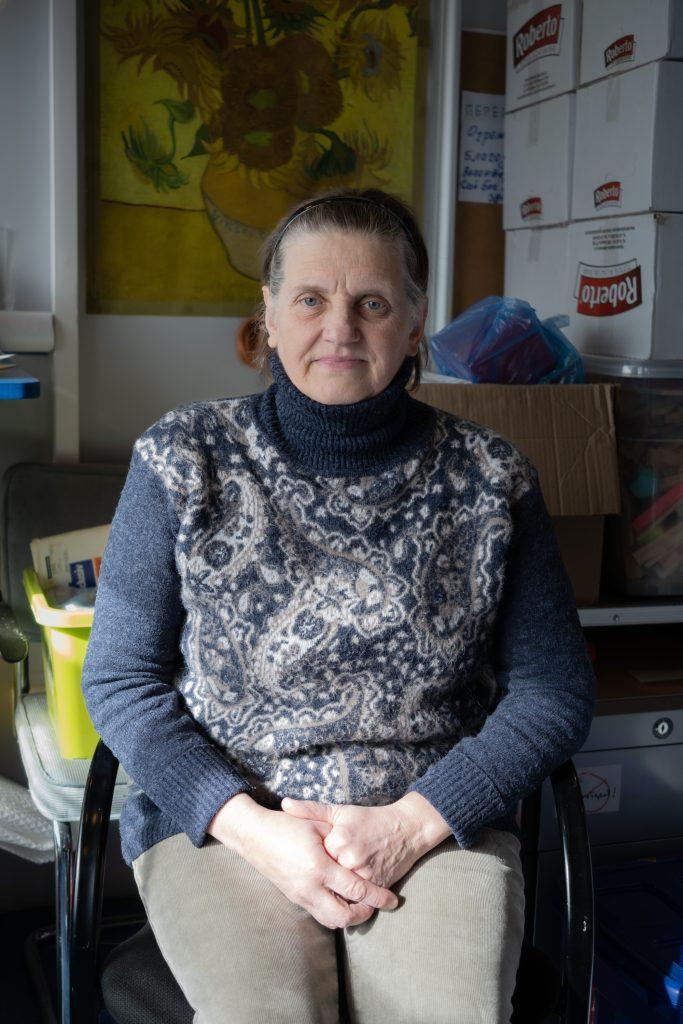
Natalia, who is 64, is currently living in Amsterdam. Unfortunately, she cannot find a job due to her age, and the high cost of living in the Netherlands and the lack of financial support further add to her difficulties. Natalia has five children, one residing in Kyiv, one who unfortunately passed away, another living in the occupied territory and is not in touch, one living in Canada, and the last one being with her in The Netherlands for the last 10 months.
At the beginning of her stay in The Netherlands, Natalia found it tough to adapt due to the noises reminding her of shelling and bombing, which made her feel scared.


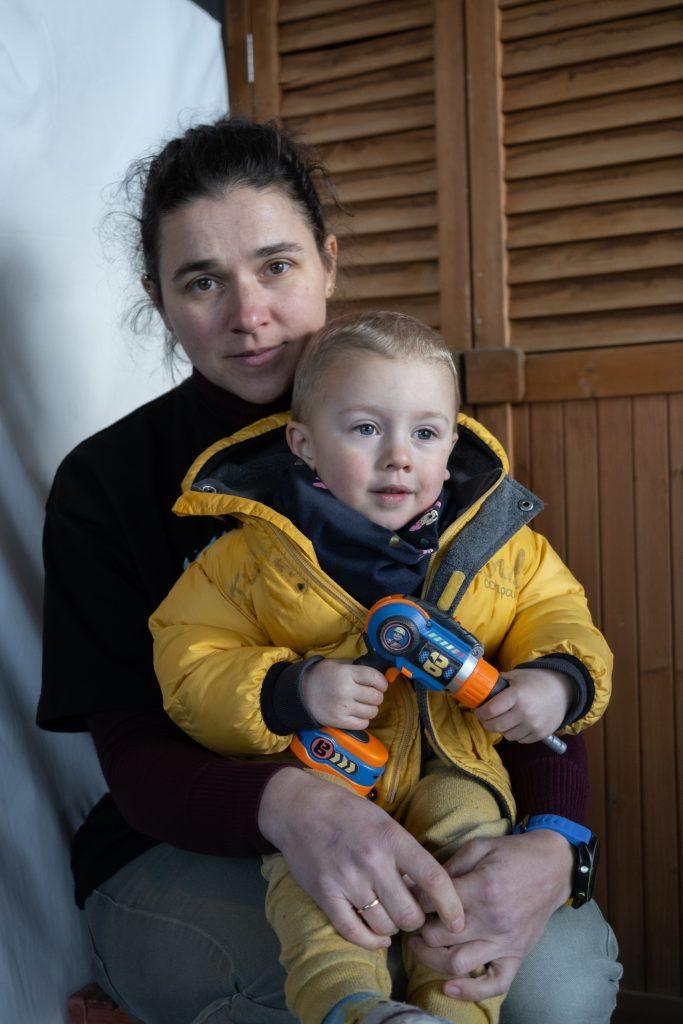
Kira is from Irpen. During the war, she stayed in her basement until March 5th, when she had to leave the city due to the constant shelling and gunfire. She packed only a few changes of clothes for her child, Hector.
In the meantime, Ukrainians destroyed a bridge in Irpin to prevent the Russians from reaching Kyiv. Although the bridge was destroyed, a path was still possible for people to cross. Volunteers assisted them in walking through it. They eventually reached the highway where a car was waiting for them. Kira, along with her husband and child, decided to go to Lviv because it was a more peaceful place. However, due to the large number of cars present and the fact that they didn’t have enough fuel, the usual 5-6 hour journey took them 3 days. They drove from Irpin to Lviv, but her husband couldn’t cross the Ukrainian border. During this time, her relatives’ houses, cars, apartments, and her parents’ house were all destroyed.
About being in The Netherlands Kira states: “If you come here as a tourist you like animals, and flowers, everything is beautiful, but if you are forced to come here, animals are not good for you, nothing is beautiful to you, because this is not your choice.”


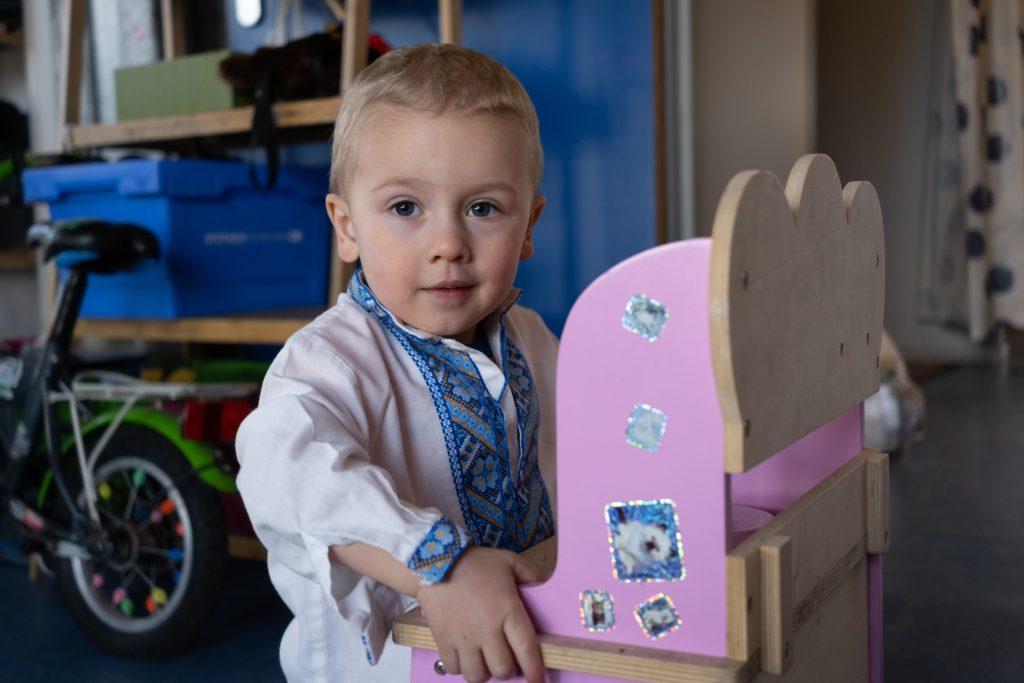
When Kira and Hector were in Lviv, they found themselves without any clothing. In their need, they started asking people for clothing donations. Some people generously responded to their call for help by bringing them clothes, including the shirt that Hector is wearing in the photo. The blouse has a personal value for Kira because it reminds her of the kindness of these people. Ever since they have taken good care of it as a precious memory of their time in Lviv.
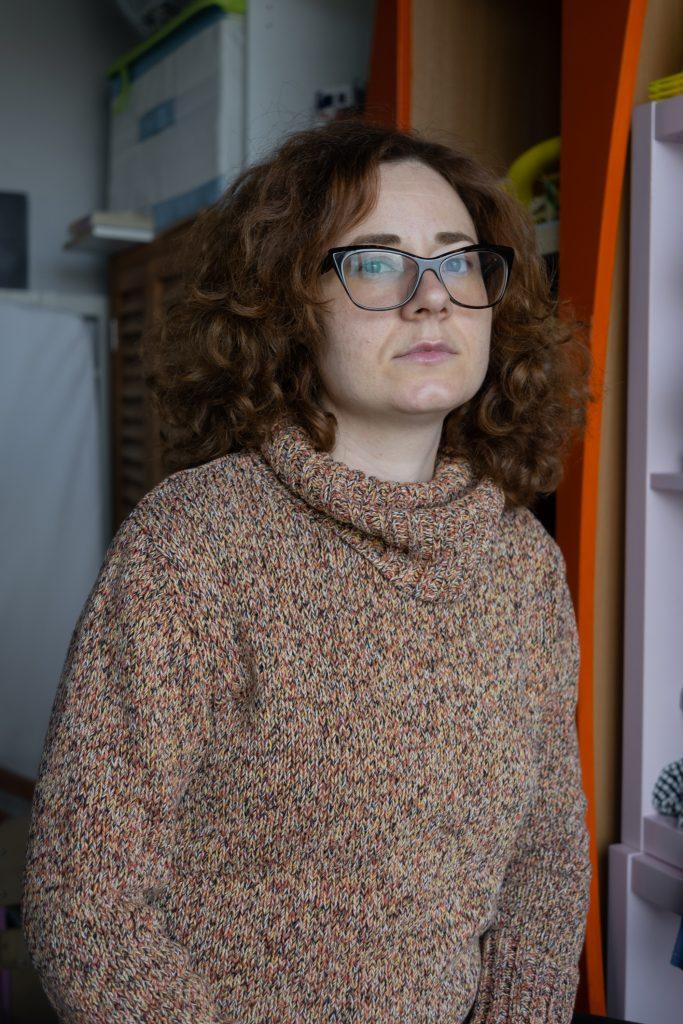
Olha is originally from Kherson and had to endure living under occupation for one and a half months. Eventually, she decided to leave and with her colleagues, travelled to Odessa and then to the Netherlands. She arrived in April 2022 and now lives with her brother. Initially, she felt uneasy due to the differences in language and culture, but she is slowly adapting and things are getting better. Olha is grateful for the support she has received from the Dutch people. She has since discovered the organization”Volunteers with No Limits” and in May 2022, she decided to join it as a volunteer as she wanted to contribute in a meaningful way. For the time being, her parents are still in Ukraine but are safe.
She lives in the Netherlands with her uncle, aunt and grandmother.

